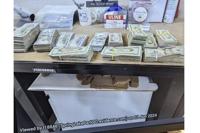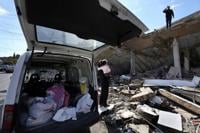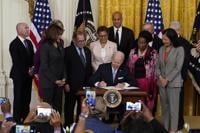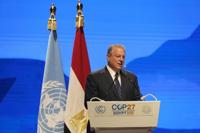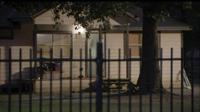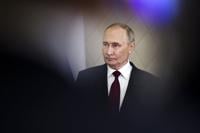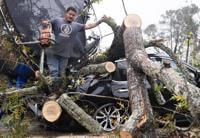MINNEAPOLIS (AP) — A jury ended a second day of deliberations Wednesday without reaching a verdict in the trial of seven Minnesotans accused in a scheme to steal more than $40 million from a program meant to feed children during the coronavirus pandemic, while FBI agents try to establish who left a bag with $120,000 in cash for a juror.
Federal authorities confiscated the defendants' cellphones to search for clues and took all seven into custody on Monday before deliberations began. The trial judge also sequestered the jury after dismissing the juror who turned over the gift bag, along with another juror who reported hearing about the bribe attempt.
FBI agents searched the home of one of the defendants Wednesday, according to a neighbor who witnessed the search and spoke to The Associated Press on condition of anonymity because of safety concerns. News of the FBI raid was first reported by KARE-TV. The home searched is identified in court records as the home of Abdiaziz Shafii Farah, who prosecutors have described as a ringleader of the seven.
The neighbor described seeing several FBI agents armed with assault weapons standing outside the home. The agents used a megaphone to instruct the home's residents, who came outside and stood in the driveway, the neighbor said.
Minneapolis FBI spokesperson Diana Freedman said in emails to the AP that “The FBI was present in Savage, MN conducting court authorized law enforcement activity,” but that “I cannot provide or confirm any additional information.”
Farah’s attorney, Andrew Birrell, would not comment when reached by the AP.
According to an FBI agent’s affidavit, a woman rang the doorbell at the home of “Juror #52” in the Minneapolis suburb of Spring Lake Park late Sunday, the night before the case went to the jury. The juror wasn't home, so the woman handed her relative a gift bag with a curly ribbon and images of flowers and butterflies, saying it was a “present” for the juror.
“The woman told the relative to tell Juror #52 to say not guilty tomorrow and there would be more of that present tomorrow,” the agent wrote. “After the woman left, the relative looked in the gift bag and saw it contained a substantial amount of cash.”
The juror called police right after she got home and gave them the bag, which held stacks of $100, $50 and $20 bills totaling around $120,000.
U.S. District Judge Nancy Brasel and attorneys for both sides learned about the attempted bribe Monday morning, before the last closing arguments.
Freedman said the investigation is ongoing, and no further information is public. No arrests have been announced.
Anyone involved in the attempted bribe could face federal charges of bribery of a juror and influencing a juror, with a maximum potential penalty of 15 years in prison.
The seven defendants are the first of 70 to stand trial in what federal prosecutors have called one of the nation's largest COVID-19-related fraud cases, an extensive scheme to exploit rules that were kept lax so that the economy wouldn't crash during the pandemic.
Prosecutors say the seven collectively stole more than $40 million designed to feed children in Minnesota, and that the overall conspiracy diverted $250 million in federal funds.
At its center was a nonprofit called Feeding Our Future. Prosecutors say just a fraction of the money went to feed low-income kids, with the rest spent on luxury cars, jewelry, travel and property. Federal authorities say they have recovered about $50 million.
Eighteen other defendants have pleaded guilty. Those awaiting trial include of Feeding our Future. She has maintained her innocence, saying she never stole and saw no evidence of fraud among her subcontractors.
These seven defendants are: Abdiaziz Shafii Farah, Mohamed Jama Ismail, Abdimajid Mohamed Nur, Said Shafii Farah, Abdiwahab Maalim Aftin, Mukhtar Mohamed Shariff and Hayat Mohamed Nur. All were charged with wire fraud conspiracy and money laundering, and some faced additional charges in the 43-count indictment. Each had their own lawyers.
The common thread in their defense is that investigators failed to dig deep enough to see they served real meals to real kids.
The food aid came from the U.S. Department of Agriculture and was administered by the state, which funneled the meal money through nonprofit organizations and other partners. As rules were eased to speed support to the needy, the defendants allegedly produced invoices for meals never served, ran shell companies, laundered money, indulged in and accepted kickbacks.
An documented how thieves across the country in federal COVID-19 relief dollars. Fraudsters potentially stole more than $280 billion, while another $123 billion was wasted or misspent. Combined, the government disbursed by last fall. Nearly 3,200 defendants have been charged and about $1.4 billion in stolen pandemic aid has been seized, according to the U.S. Justice Department.






